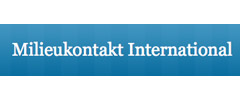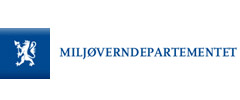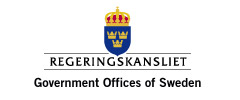WECF and Kata Khill Project Report 2005
Improvement of access to safe water and sanitation in rural areas of Northern Afghanistan, and providing the preconditions for learning.
12.07.2006 |Gero Fedtke
The project area: Dasht-i Eshantup, an arid plateau
Note 14.12.2010
In 2009 Katachel e.V. discovered that one of the local managers of Katachel Afghanistan had registered some of the associations property (women's soap factory, houses for widows) on his own name. When this became known, and the manager was confronted with this, and asked to re-register this property on the name of the association, this manager went to the press and accused the director Sybille Schneehage of misappropriation of goods or property. This unfounded information was spread by the media worldwide, and has lead to an investigation by the Afghani and German criminal police services. In May 2010, the Afghani authorities re-registered all the property back to the association Katachel. It took many more months, but after not finding any wrong doings with the director of Katachel e.V., the German authorities withdrew all charges on 13 December 2010. WECF is very glad that the problem has been solved and continues to support the work of Katachel.
Tapping Resources – use the strength of women for sustainable development
Afghanistan
In 2005,WECF started the four-year (2005–2008) project “Tapping Resources” on poverty alleviation with partners from the poorest countries in the Caucasus and Central Asia funded by the TMF programme of the Dutch Ministry of Foreign Affairs. Main project implementation takes place in Armenia, Afghanistan and Uzbekistan.The goal of the project is direct sustainable poverty alleviation and direct improvement of the environment and living conditions of people living in poverty in marginal rural are as in Afghanistan, the Caucasus and Central Asia. This will be accomplished through the implementation of applied, sustainable water-, sanitation- and agricultural pilot projects, capacity building of civil society, improving governance, increasing democracy and involvement in policy development and particularly strengthening the position of women on all levels.
Thus, the project is working towards the realization of the Millennium Development Goals. The project started to develop demonstration projects with a focus on involving women in project implementation and local decision making. The demonstration projects will help to identify legislative, institutional and cultural barriers as well as catalysts and appropriate technologies.
The lessons will be used to replicate and improve the results and prepare recommendations for national and international policy making, in particular, in reaching the Millennium Development Goals.
The international policy work is carried out within the framework of the WSSD partnership Women for Water, Water for Women, of which WECF is one of the founding members.
In Afghanistan, the project is implemented by WECF partner Kata Khill Afghanistan, an Afghan – German NGO (Katachel e.V.) Kata Khill works in Kunduz province since 1994 to help reduce poverty through income-generating activities such as shoe and tent making and building of schools. Katachel also helps improve the water, sanitation and health situation by constructing wells, toilets and providing medical care and equipment. Katachel ordered 1000 Ecosan toilets to be installed in the Kunduz region to provide for better sanitation and protect the groundwater.

The school in Akakhel with its first pupils
The WECF-Katachel project will run till 2008 and involves the building of two schools with eco-san toilets, building 60 wells, and providing hygiene education. Activities in 2005 focused on the construction of a new school in the village of Akakhel, on the Dasht-i Eshantup plateau, near Kunduz. Akakhel’s location on this remote desert-like plateau has led to its being neglected so far by international aid programmes, while it had not shielded the village from the more than 20 years of war and civil strife. Until recently it had been considered a stronghold of the Taliban. The activities for building the school have fundamentally changed Akakhel’s isolated situation. The young men from the village, who have constantly taken part in building the school and are now part of its first classes, have even taken up the habit of regularly visiting Kata Khill headquarters in Kata Khill village.

Katachel e.V. Germany director Sybille Schnehage opens the new school in Akakhel
On March 28, 2005, the building’s first stone was laid. This is the first school built on the desert-like plateau. It will be an important development for the two neighbouring villages Akakhel and Shun Shur Darr. From these villages, 350 girls and 250 boys now attend the school daily. Only few of them were literate before the school opened. In its eight classrooms, the girls and boys are taught by eight teachers in three shifts. The teachers are employed and paid by the provincial government, which has also taken over the responsibility for providing teachers and maintaining the building. This school and the education given is a first step towards poverty reduction and development in this region. It also contributes to improving mutual trust and peace between the Pashtu inhabitants of Akakhel and the Hazara living in Shun Shur Darr. On August 4, 2005 the school was opened festively in the village of Akakhel. Many officials, like Kunduz Province’s Governor Ingenieur Omar, the provincial minister for Education Faruk, the German Oberst Hans Otto Iben and the Dutch Major Van der Heiden attended the opening ceremony.
The school is equipped with Ecosan toilets.

The Bridge in Char Tut.
Furthermore, Katachel e.V. has built one small bridge in the village of Char Tut and 12 wells in the villages Kattaarab and Kattauzbek. The bridge improves the accessibility of Char Tut considerably, since the main road can now be reached from the village by cars and in any weather conditions, which previously had been very difficult or even impossible. The wells are mostly built in household yards to ensure easy access for women, for whom it would be sometimes a problem to be exposed in public while fetching water. Each well provides water for approximately 35 people. These wells are an essential improvement to the water supply situation for more than 400 people and will considerably increase their quality of life and state of health.
Related News
"Bartang – The Valley of Hopes" - documentary devoted to the life of remote mountain villages in Tajikistan
WECF Partner Little Earth is an ecological organisation with a creative approach to solving traditional problems of environmental protection
09.03.2016
EWA Afghanistan Sewing Course
Status, motivation and making decision
09.03.2015
WECF partner Katachel prepares women and families in Kunduz for the winter - Sewing project in Afghanistan
German charity Katachel e.V., with the aid of WECF, initiated a sewing project for young women and girls in Kunduz, Afghanistan. This provides long-term prospects and sustainable development.
10.01.2013 | WECF
WECF partner Katachel directly improves living conditions in Kunduz by constructing bath rooms
The construction of bath rooms has been a big step forward in improving the quality of life
01.02.2011 | WECF/Katachel
German aid worker wins Afghan hearts
WECF network organisation Katachel highlighted in article on Radio Netherlands World Service (tekst in het Nederlands)
16.04.2008 | Hans de Vreij, Defence and Security Specialist, Radio Netherlands Worldservice







































